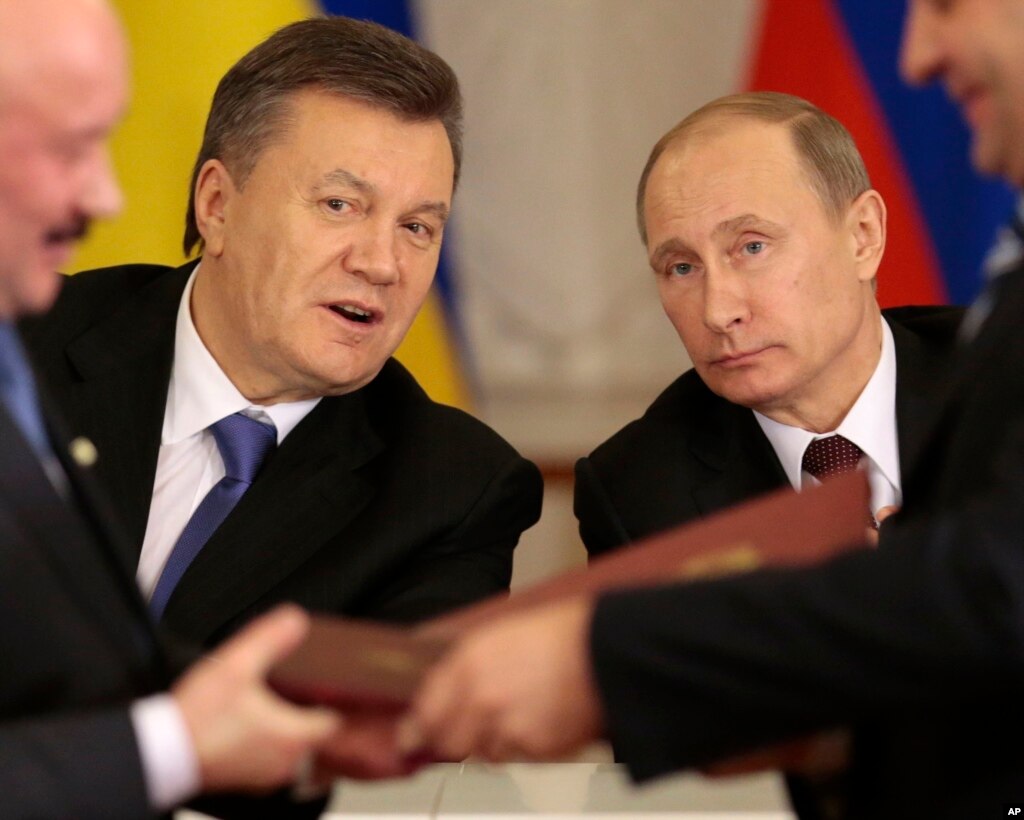
If Kiev is raging today, its reasons are, in-depth, political-economic in nature. The unrest is primarily due to the dissatisfaction among people with the economic set up of the country. Ukraine’s largest trade partner is the supranational organization called EU, but it is followed close by Russia, which ranks first among the list of countries Ukraine trades with. EU and Russia are two parties which are necessary for Ukraine. On the 21st of November, 2013, the Ukrainian government severed economic and diplomatic ties with EU and despite efforts, the talks between EU and Ukraine failed, simply because of their inability to reach a consensus.
It’s interesting to learn the causes due to which no consensus could be reached upon. Broadly talking, it needs to be understood that Ukraine’s currently split between Russia and the European Union, both of which clash solely because somewhere still remains the Cold War hostilities against each other. Nobody who interests her or himself in international relations is divorced from the understanding that EU’s patron, even literally, is the US.
Ukraine has had a history of this patron-client relationship with Russian Federation ever since the USSR broke down. Despite that, Moscow has been, under the required sort of leadership, making an effort to counter the influence of the West, wherever it can contest that influence.
Relations with the EU were severed because the governance led by President Viktor Yakunovich wanted to strengthen ties with Russia. The undercurrent of the ongoing unrest seems to be, in addition to accumulation of historical and political factors , greatly economic. The Ukrainian economy has had a troubled economic past. 1998 saw collapse of the whole economy. The output levels had fallen to less than 40% of the 1991 level by 1999. While Ukraine was still reviving, it was strongly affected by the 2008 economic meltdown. After contracting 15.1% in 2009, GDP bounced back only 4.3% in 2010 and was forecast to grow between 4.5% and 4.7% in 2011.
Ukrainian economy is heavily dependent upon energy resources imports, which account for at least 3/4th of its annual requirements, and these imports are brought in primarily from Russia, and has debts concerning the same transaction registered against itself.
At the moment, Ukraine urgently needs to cover an external funding gap of up to $17bn (£10.4bn; 12.3bn euros) next year to avoid defaulting on its debts, reports BBC. In short, the economy hasn’t been performing very well.
Russia, recently, agreed to buy $15 billion in Ukrainian debt by investing in its national welfare fund. Added, it has also slashed down the prices of energy resources it exports to Ukraine – apparently, from more than $400 per 1,000 cubic meters to $268.50. This is a great short-term relief for Ukraine, but it’s just short-term. Whatever Russia gains from this concerns geo-political security measures, for instance, a naval base in the Autonomous Region of Crimea. Added, there might have been some collateral, as the opposition cries foul against the bailout, details of which hasn’t been revealed by the signing parties. That is a different thing, but, one might want to question here, what exactly would be long term in case of Ukraine here?
Ukraine, many analysts feel, has not been carrying out those structural (economic) reforms it had envisaged to implement when it received its independence in 1991 – most of them were to lead transition to a capitalist form of economy but the government hasn’t been able to bring these reforms about. These are the very reforms which have been, it’s widely agreed across the world, beneficial to all those economies which endorsed it in the first place and vital in the long run.
What Ukraine could actually gain from assimilation into European Union is a certain extent of economic liberty to the Ukrainian individuals, which itself is one of the direct consequences of a healthy economy. Added to this is the fact that Ukraine doesn’t get a lot of foreign investors due to weak corporate governance and investment-conducive strategies. Drifting away from EU means drifting away from a liberalized, privatized trade and market arrangement. Olga Shumylo-Tapiola, a research scholar, feels that it is largely dependent upon the sort of leadership. Also, it must be understood that EU is an organization which is more or less explicit about what it expects from prospective members – democracy and socio-economic flexibility in the environment it’s about to deal with. Ukraine, so far, doesn’t seem to be able to match up to the requirements EU has set out.
The movement today in Ukraine has moved to become against the government and its functioning from a pro-EU movement. There are a lot of arguments concerning reason behind and capacity of the government actually taking such a radical step despite popular dissent.
In my personal opinion, Ukrainian government today is facing a problem which is difficult to get out of. It is not simply about short term and long term planning on the behalf of Ukrainians. It is about how it manages its relations. It needs Russia, which is acts, in frank terms, like a provider and, added, even Russia doesn’t seem to let go of Ukraine simply because Ukraine is in a strategic geographical position, access to which Russia cannot afford to lose. Added, Ukraine’s dependence on Russia is an obstacle Ukrainians simply cannot overlook.
On the other hand, acceding to EU will mean not only explicitly demanded, on-the-surface transformation, but also implied demands of change in the Ukrainian foreign policy – who and how to deal with. Essentially, the entire process of integration with the EU will bring about a huge change in terms of not only economy, but also polity and society within Ukraine which seems to be desired by those thousands of people demonstrating in Kiev.
However, as Angela Merkel, the German chancellor, puts it, Ukraine doesn’t have to severe ties with Russia in order to look West. While it might look like a tug of war, it depends upon what Ukraine actually prioritizes. Structural reforms that have been stalled, leading to strained ties with external financial institutions and aid, must be now brought to the forefront, not only to meet membership requirements of the EU, but primarily to make its economy better, which is greatly vulnerable to external shocks.
It seems to me what lacks here, is a sort of a balance between two elements weighing heavy on either side. Tilting to one side entirely is not an option.
In this situation of conflicting affiliations and ameliorations, Ukrainians cannot choose to be confused about what the country’s immediate goals are.


































